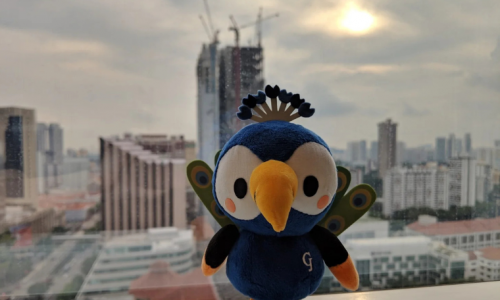Are you considering or aiming for job opportunities in Singapore? Here are some personal experiences from working in the “Lion City”.
Singapore is a Developed Country!
What kind of impression do you have of Singapore?
Are you thinking “Marina Bay Sands,” “littering is prohibited,” or “it’s a small country“?
All of these accurately represent Singapore. But, despite its small size, Singapore has many facets, and even after about a year, I still encounter daily surprises and moments of admiration.
I strongly feel that Singapore is a well-developed country among all these impressions. The standard of living for citizens is high, and industries centred on finance and logistics are world-class. Singapore is indeed a very comfortable country for business and living.
Public transportation is well-developed, and you can travel anywhere within the country using the MRT a subway-like system or buses. Additionally, taxi-hailing apps like Uber and Grab are available almost everywhere in the country, and their prices are quite reasonable, making them a popular mode of transportation for citizens. Shopping malls, where you can enjoy shopping and spend your weekends, are located near almost every station, allowing for a convenient lifestyle.
In Singapore, the development of gate machines allowing entry with facial recognition is underway, and they are expected to be introduced by the end of 2017! Experiments for the introduction of flying taxis are also being conducted, making it seem like technological advancements for the general public are progressing extremely fast.

Excellent Connectivity to Other Asian Countries!
Singapore is known as the hub of Asia, making travel very convenient. Changi Airport has repeatedly ranked number one in the world and boasts impressive numbers in terms of passenger traffic and flights.
The airport’s facilities are also top-notch. From Changi Airport, there are direct flights to various parts of the world, and many low-cost carriers (LCCs) operate there, significantly lowering the barriers to international travel.
I’ve been in Singapore for just under a year and have already visited six countries. Many of my colleagues and acquaintances have traveled to various other countries as well.
Conversely, many foreigners visit Singapore, and you can see numerous foreigners in the city for business or tourism.
Additionally, access to Changi Airport from the city is excellent. It takes about 20 minutes and costs around 1,500 yen by taxi from the city center.
Living in Singapore and Blending In
Singapore is known as a multi-ethnic country, with its citizens being a mix of Chinese, Malay, and Indian ethnicities. Remarkably, about 30% of the residents are foreigners, a ratio that is uncommon globally. This includes migrant workers from neighboring countries as well as many Japanese people like myself, creating a truly diverse population.
Walking through the streets, you’ll see various appearances and hear many different languages, making it easy to forget where you are. Among the citizens, 70% are of Chinese descent, 20% are Malay, and 10% are Indian. Even “Singaporeans” speak multiple languages. Although English is the official language and you can get by with just English, announcements in public places like trains are made in English, Chinese, Malay, and Tamil.
Given these circumstances, I often found myself consciously thinking, “I am Japanese” when living abroad. However, in Singapore, I don’t feel that way at all.
Everyone seems to be living their own lives without paying much attention to those around them. You can enjoy the multicultural aspect without losing touch with your ethnic roots here.
Minimise Time Spent Traveling for Work
I commute about 50 minutes by bus, and the local staff were surprised at how far that is. Given the small size of the country, spending a lot of time on travel is not very common, and it’s not unusual for people to choose jobs based on their location.
Trains and buses don’t follow the kind of timetable we are used to; instead, they display how many minutes remain until they arrive. Many apps show waiting times, and people seem to be very conscious of “how to use time efficiently,” especially when commuting.
Unlike in Japan, where it’s common for people to spend one or two hours commuting, almost no one here does, which was a huge culture shock for me, but it opens up more time for extra activities or leisure.

Stay Warm in the Air Conditioning!
Due to Singapore’s year-round high temperatures and humidity, you tend to sweat when walking outside. However, once you step indoors, the air conditioning is often set too high. Especially in shopping malls, buses, trains, and offices.
There are several reasons for the strong air conditioning, and while my energy-conscious background might lead me to view it as excessive, it’s clear that even locals feel the chill. Managing your health is key, and many people here wisely keep an extra layer handy.
The intense air conditioning can occasionally make you feel strange, but I’ve recently come to appreciate the refreshing coolness it provides.
A Diverse Workforce
Since about 30% of residents in Singapore are foreigners, and in daily life, you encounter people from various nationalities and backgrounds. In my profession, I frequently meet job seekers from not just Asia but from all over the world who are considering career moves or relocation to Singapore.
Although visa regulations for foreigners have become gradually stricter in recent years, there are still many opportunities available, so I encourage you to give it a try!
You’re Not Alone In This!
Since coming to Singapore, I’ve seen many people of my generation thriving here. I run a group called the Heisei 3rd Year Association in my personal time, which has around 50 members, and I am amazed by the number of people from my generation who are making an impact.
There are various reasons people come to Singapore, but a lot of them are here for work.
When I first came to Singapore, there were only a few acquaintances considering working abroad, but I soon realized that I simply hadn’t met them yet.
Some people here don’t speak English or have come due to company relocations, but everyone is making their mark, and I’ve come to strongly believe that working in Singapore as a foreigner is a common experience.
It is Not Always Easy
The above points mostly highlight the positive aspects, but there are also many inconveniences and drawbacks. For instance, with healthcare, as a foreigner, I can’t enroll in the country’s health insurance. This means that most costs are out-of-pocket (though many companies do provide insurance or medical allowances).
Additionally, real estate prices are higher than in many other bigger cities like Tokyo, making monthly rent quite expensive. Renting a one-room apartment (referred to as a “studio”) in the Central Business District area typically costs over SGD1,000, so many people opt to live in shared rooms.
However, despite these “inconveniences,” I still believe that living in Singapore is worthwhile.
A Stronger Sense of Purpose Abroad
Many people I encounter abroad, seem to live with a clear sense of purpose. This environment is very stimulating and makes me more aware of my own goals and urgency in life.
In Singapore, where there are many foreigners, I frequently meet individuals who have specific reasons for being here. Each encounter makes me reflect on my own sense of purpose and direction.

That’s all for my personal experiences, but I truly believe that taking on a job abroad, especially in Singapore, was a great decision in my twenties.
Masaki Hamaguchi

Masaki Hamaguchi / Good Job Creations
After working at a Japanese advertising agency, Masaki came to Singapore seeking further career advancement. Utilizing his experiences from volunteering, internships, and backpacking across approximately 30 countries, he now provides career transition support.





